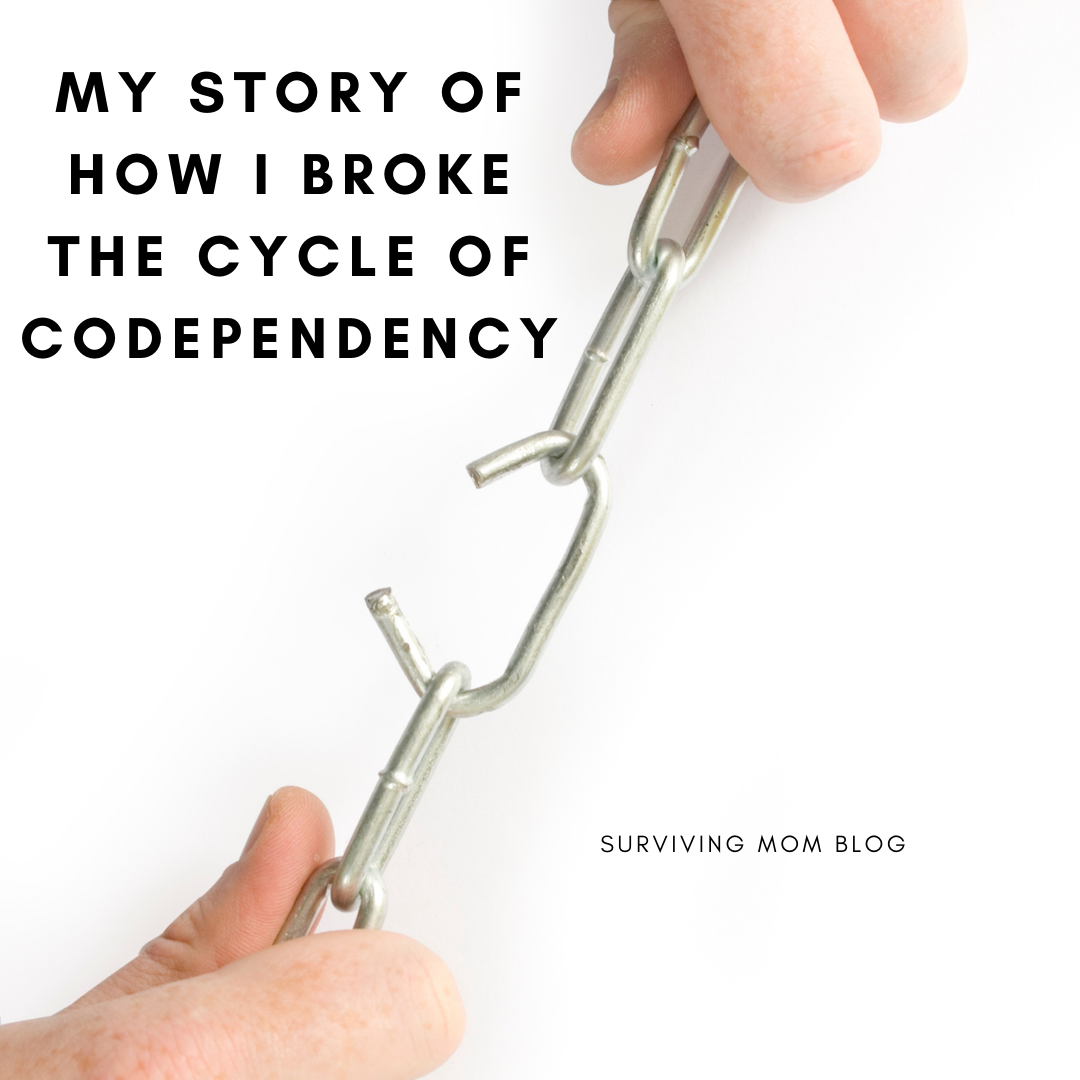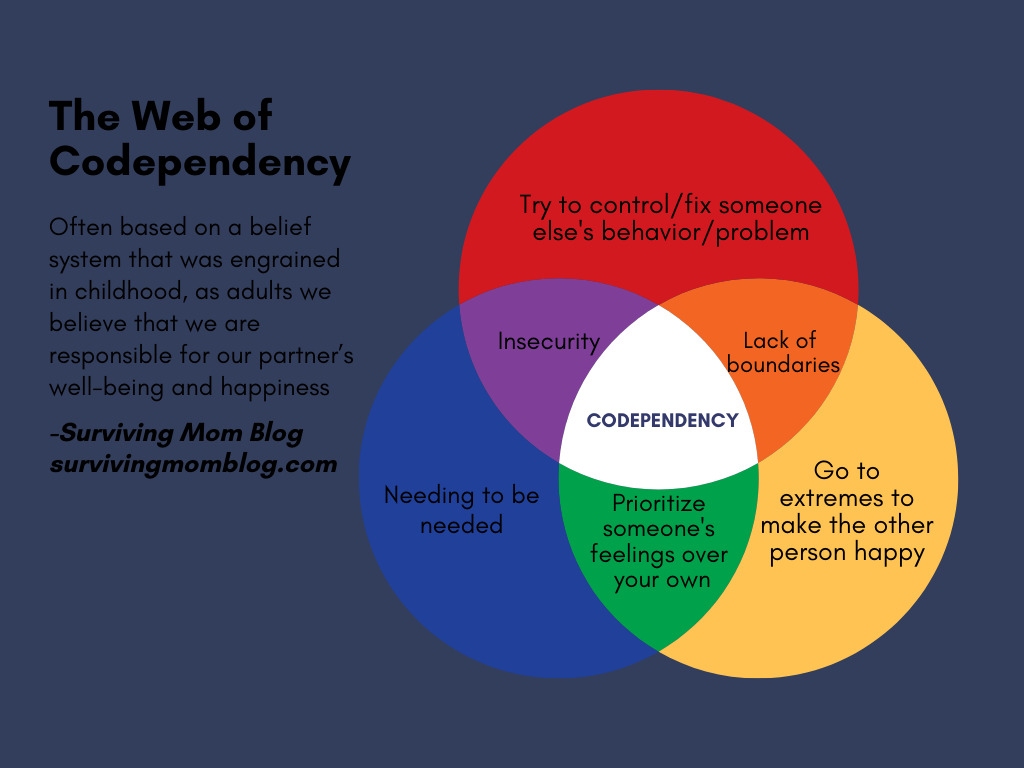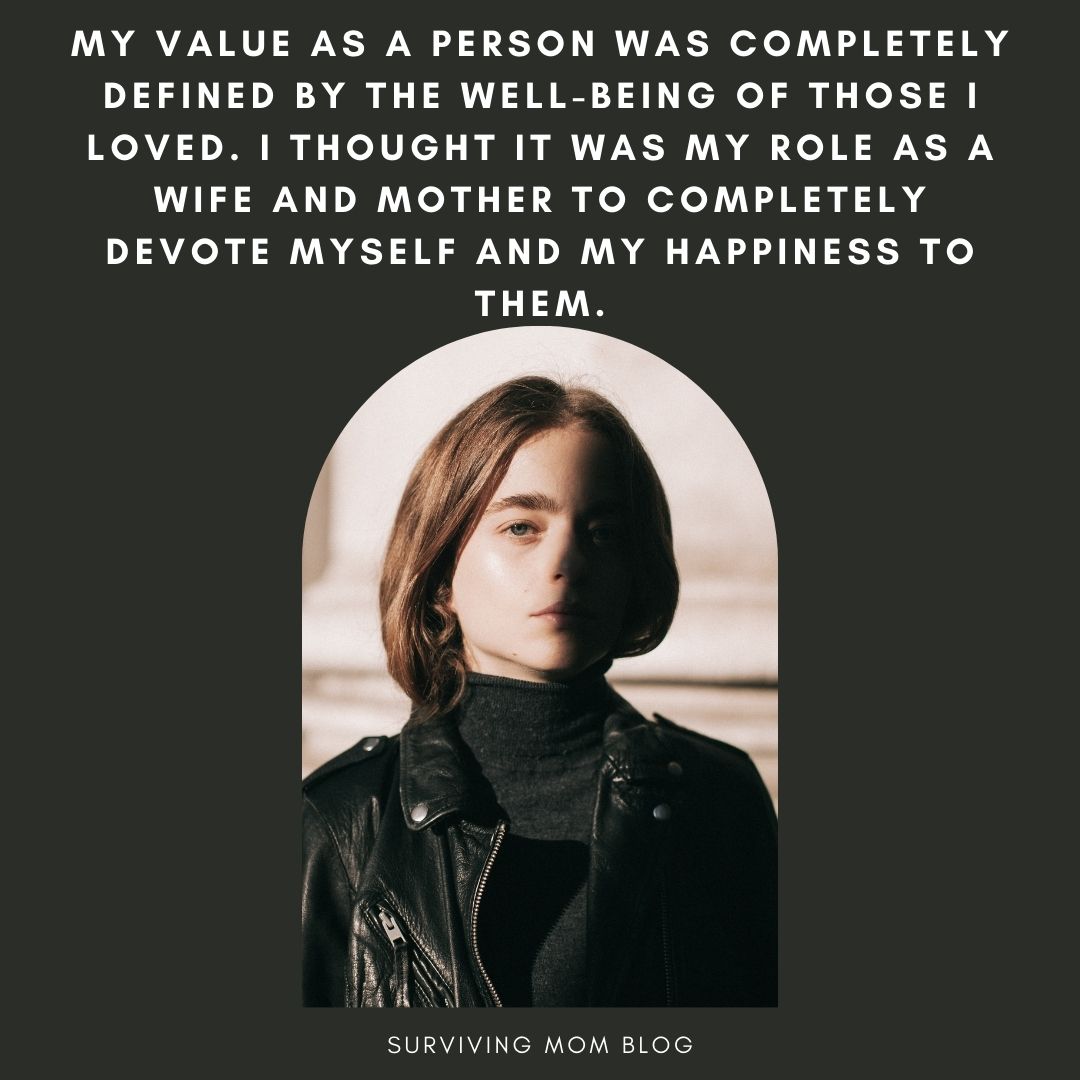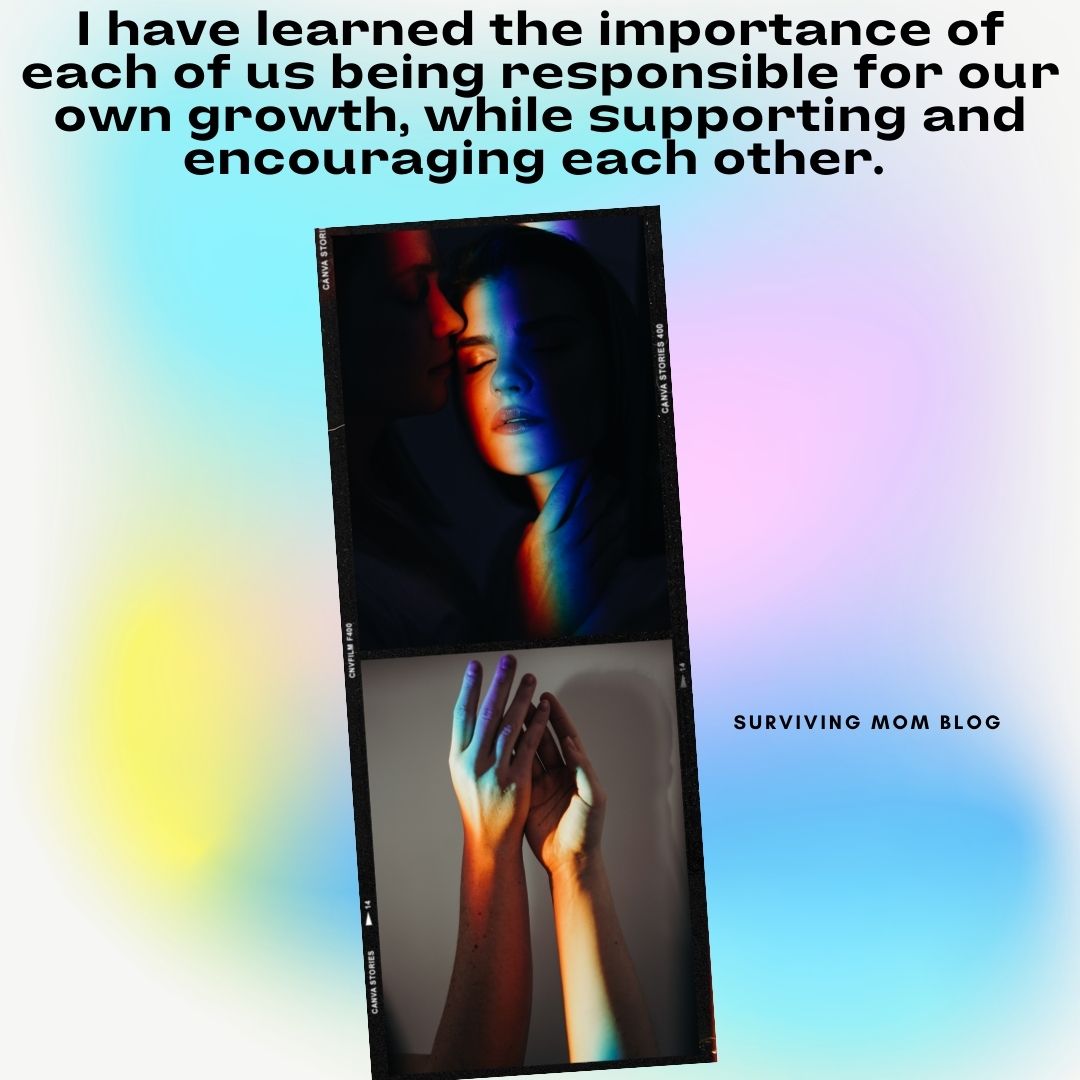
Codependency is a huge buzzword nowadays. Everywhere you turn there are people preaching about how to break the cycle of codependency.
I agree that codependency isn’t healthy. That said, it is so easy to fall into that cycle, and it is difficult to overcome.
For many, codependency was normal for us growing up. If you had a parent that you took care of (as opposed to the other way around), you learned that your happiness and safety were dependent on the other person’s happiness. There were no boundaries, and your feelings were ignored or minimized. You were made to feel guilty for trying to prioritize your well-being. Furthermore, you learned that your well-being and sense of self were completely contingent on the well-being of someone else. When that person was happy, you felt loved and needed. By default, if the adult was upset or unavailable (emotionally or physically) to you, you felt worthless and unloved.
caught in a cycle of codependency

I grew up having the belief system that it was my job to make my mother happy. I listened to her marital and life problems, tried to cheer her up, and felt good about myself when I felt she needed me. When she had nothing to do with me, I felt like a complete failure as a daughter and as a person. I tried to do everything possible to get her love and approval. As a result, I made myself completely available to her. I was so available that I spent two hours of my honeymoon trying to calm her down due to her recent breakup. Her feelings were always prioritized over mine, and I felt it was my job to make sure she was okay.
She relied on me to comfort her and be there for her, and I relied on her positive opinion of me to feel valued and loved. We were the definition of codependency.
Based on a belief system that was engrained into many of us, we believe as adults that our partner’s well-being and happiness is our responsibility. After all, that is all we know and were taught from a young age. As a result, it was only natural that my cycle of codependency with my mother translated into a codependent relationship with my spouse.
MY SPOUSE AND I WERE MUTUALLY DEPENDENT ON ONE ANOTHER
When my husband started heavily drinking and then taking pills, I felt like it was my job to make him sober. I believed that it was up to me to figure out how to make him stop. When my efforts failed, I felt like a complete failure. Taking care of my husband and making him get clean was my responsibility. I believed I was a terrible wife unless he stopped using.

My value as a person was completely defined by the well-being of those I loved. I thought it was my role as a wife and mother to completely devote myself and my happiness to them. This way of thinking made it so that other people were responsible for my own feelings of security and safety. This helped to perpetuate my cycle of codependency in my relationships. When the roller coaster of my husband’s addiction took me for a ride, my feelings of self-worth plummeted or soared with it. It became my obsession to save my husband.
At a certain point I reached my own rock bottom. I saw how vicious the emotional cycle was of trying to make him better/save him. I realized that focusing all my efforts on him was a distraction so that I didn’t have to heal my own wounds and trauma. If I was focusing on someone/something that was out of my control, I didn’t have to fix what I had control over- myself.
how to break the cycle of codependency
I finally realized that my happiness was my responsibility, and I learned a lot about the codependency cycle. It was both terrifying and empowering to know that my happiness was my job, just as others are responsible for their own well-being and happiness. The book Codependent No More: How to Stop Controlling Others and Start Caring for Yourself by Melody Beattie was extremely helpful and enlightening. If you haven’t read it, I highly recommend it on your path to ending codependency.
It was up to my husband to get clean, and I couldn’t make him do that. I could support him and love him, but I could not fix him. Accepting that and focusing on myself was how I would break the cycle of codependency.
I also established clear boundaries with my daughter. I’ve instilled in her that her job is to learn from her mistakes and take responsibility for her actions. I do not want her to feel responsible for others. My daughter knows that the decisions my husband and I make are our responsibility. It is our job to take care of our child, not the other way around.
Another thing I reinforced is that it is imperative and healthy to feel and share your feelings with those you love and trust.
I remind her that I can offer support or advice, but I cannot make her feel better. I don’t discuss my adult problems with her, but I am open about my feelings and model tools that I use to feel better.
When my daughter tries to get involved and tell me and my husband what to do, I remind her that she has control over her actions and not others. I explain that she should focus on being the best version of herself, as it is also each of our individual responsibility to do so.
being interdependent instead of codependent
 What I now strive for is interdependency. It is empowering to not allow others to make me feel whole and valued. I can be vulnerable and supportive with my husband, but ultimately, I control and am responsible for how I feel. My relationships are still valued, but I also value myself separately from my role as a wife and a mother.
What I now strive for is interdependency. It is empowering to not allow others to make me feel whole and valued. I can be vulnerable and supportive with my husband, but ultimately, I control and am responsible for how I feel. My relationships are still valued, but I also value myself separately from my role as a wife and a mother.
The biggest hurdle for me was giving myself the space I needed to feel whatever I was feeling. I felt that I had to justify my feelings to my husband in order for my feelings to be valid. It is a work-in-progress to accept that my feelings are valid regardless of what he or anyone else thinks.
It took a lot of trial and error for me to apply my interdependence into all aspects of my marriage. Breaking the codependency cycle means reminding myself everyday to focus on myself and to give myself the love and care that I craved so desperately from others.
self-growth and mutual support is the key to happiness
I learned the importance of each of us being responsible for our own growth, while supporting and encouraging each other. Sure, there are things that I wish my husband would do differently. It is not my job to change him or to fix him. He is not a project or a little boy. He deserves to be treated as a man who can make his own choices. I have set clear boundaries of what I cannot except. My husband is aware of my boundaries. My choices are to accept and love him as he is or walk away if any issue is a deal breaker.
I am the happiest I have been in a long time because I am now the source of my well-being. I am not a princess waiting to be rescued, nor am I a martyr trying to save everyone to the detriment of myself. Instead, I am focused on working on myself, and looking inward for love and compassion. That, in turn, allows me to be the best wife, mother, and person I can be.
